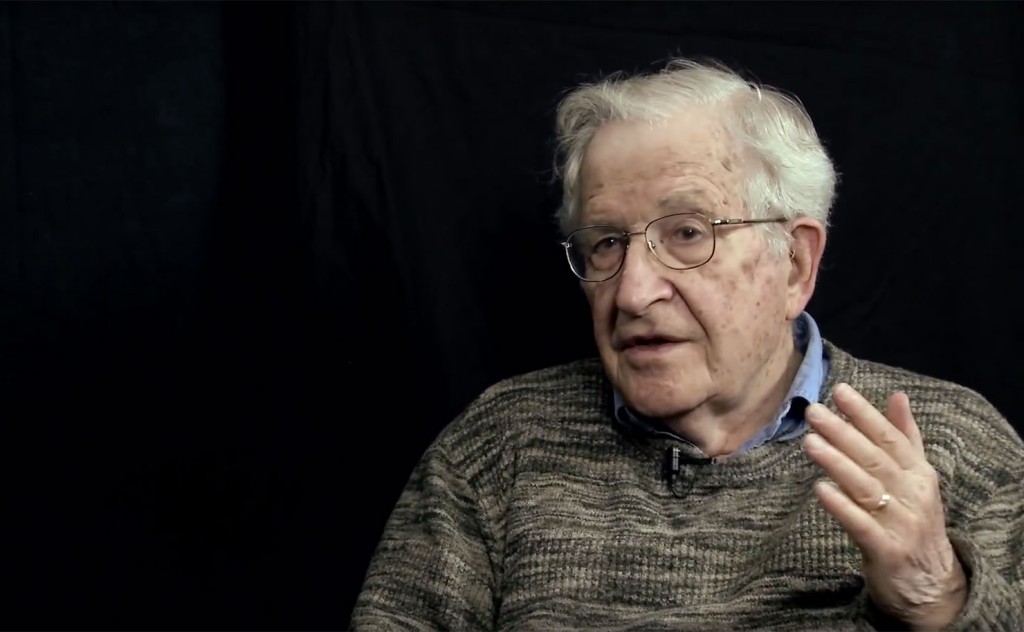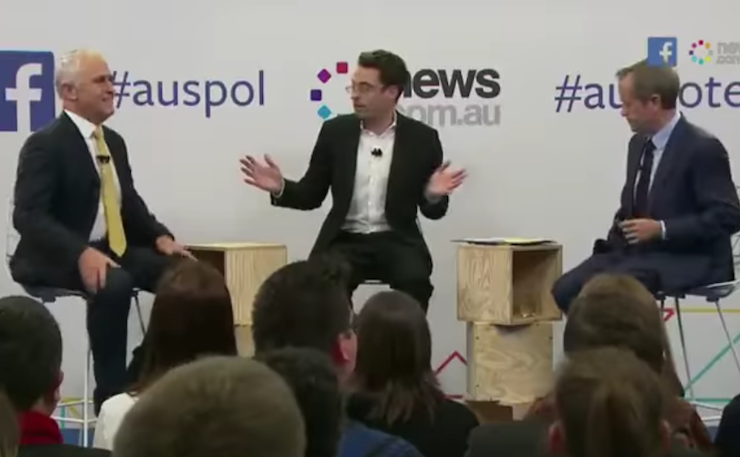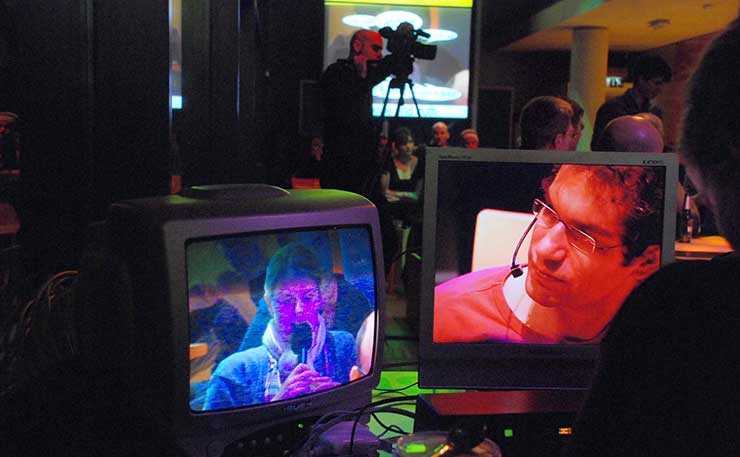Changes to the media landscape since the 1980s have only exacerbated problems in the industry, and encouraged a model of reporting that gives preference to balance over truth, writes Liam McLoughlin.
Journalism is printing what someone else does not what printed; everything else is public relations. –Anonymous.
Between 1882 and 1968, there were an estimated 3,446 lynchings of African-Americans across the United States. In the 1890s, the New York Times adopted a neutral stance on reporting this mob violence, which included immolation, mutilation, and hanging. Keen to uphold the journalistic convention of balance, the Times recounted the alleged provocations of victims which led to these attacks. According to media historian David Mindich’s account of the origins of objectivity in US journalism, this “objective” coverage concealed the truth of African-Americans as victims of nationwide terror.
The creed of objectivity, conceived as a kind of neutrality, has since been responsible for countless distortions of immense political significance. In 1952, “objective” coverage of McCarthyism led an editorial writer at The Washington Post to tell a gathering of the Association for Education in Journalism “There can be little doubt that the way [Senator McCarthy’s charges] have been reported in most papers serves Senator McCarthy’s partisan political purposes much more than it serves the purposes of the press, the interest of truth.”
In 2003, former New York Times foreign correspondent Chris Hedges became an outspoken critic of the Iraq War. He was given a formal reprimand for “public remarks that could undermine public trust in the paper’s impartiality”. Hedges has since reflected that the Times “enthusiastically served as a propaganda machine for the impending invasion of Iraq”.
New Matilda’s revelations about the editorial practice of false balance at the ABC, Jeff Sparrow’s analysis of a similar phenomenon in national climate reporting, and insightful critiques of press coverage of Election 2016, all show Australian journalism is also prone to the distorting forces of “objectivity”.
Despite these blows to the credibility of the objective model, it still reigns supreme. One 2013 study found 57 per cent of US TV news items followed the classic reporting structure, which briefly outlines stories in the news cycle. 18 per cent followed the balance structure, with equal weight given to opposing views. Just 0.4 per cent of news items were examples of investigative journalism based on intensive research and fact-finding.
Considering the repeated failures of “objective” coverage, why is it still so dominant?
The Propaganda Model

The stated purpose of the fourth estate is to speak truth to power and to hold politicians accountable. Edward S. Herman and Noam Chomsky, authors of Manufacturing Consent: The Political Economy of the Mass Media, teach us the actual goal of the press is quite different: “The societal purpose of the media is to inculcate and defend the economic, social and political agenda of privileged groups that dominate the domestic society and the state”.
Herman and Chomsky’s 1988 work described a series of information filters which shape the news and reinforce the status quo. To start with, concentrated media ownership and the profit motive of mass media firms limits criticism of the political and economic conditions which benefit these companies.
Dependence on corporate advertisers is the second crucial element influencing media conformity to elite interests.
The third factor is reliance on information supplied by business leaders, politicians and government officials: “The mass media are drawn into a symbiotic relationship with powerful sources of information by economic necessity and reciprocity of interest.”
Flak, including complaints, lawsuits, petitions and government sanctions, also play a role in disciplining journalists should they step outside the establishment consensus.
The final factor is subscription to the dominant ideology. Back in the 80s this referred to anti-communism, but updated versions of the model have discussed journalistic faith in the “miracle of the market” as well as the use of fear in the War on Terror for social control.
In 1996, Herman returned to the themes of Manufacturing Consent in an article called “The Propaganda Model Revisited”. He argued that aspects of media consensus had only worsened since the late 80s.
“The first two filters – ownership and advertising – have become ever more important. The decline of public broadcasting, the increase in corporate power and global reach, and the mergers and centralisation of the media, have made bottom line considerations more controlling. The competition for serving advertisers has become more intense.”
“Newsrooms have been more thoroughly incorporated into transnational corporate empires, with shrunken resources and even less management enthusiasm for investigative journalism that would challenge the structure of power. In short, the professional autonomy of journalists has been reduced.”
Journalism As Public Relations
Herman also believed the third filter, dependence on powerful sources, was strengthening as a tool of elite influence: “The public relations industry has been able to manipulate press coverage of issues on behalf of corporate America…there are, by one conservative count, 20,000 more PR agents working to doctor the news today than there are journalists writing it.”
Government institutions and business groups facilitate reporting with a stream of news conferences, photo-ops and press releases which feed the media’s appetite for continuous and inexpensive news content.
A typical example is the predominance of “e-spin” during the 2000 US Presidential election. One analyst observed how the canned attacks and counterattacks emailed to reporters by the Bush and Gore camps ended up almost verbatim in news stories.
US media coverage in the lead up to the Iraq war is another case study. Between September 2002 and February 2003, 380 of 414 Iraq stories on NBC, ABC and CBS originated in the White House, Pentagon and State Department.
In a powerful column for Truthdig called The Creed Of Objectivity Killed The News, Chris Hedges argued that overreliance on insider sources has damaging impacts on press freedom.
“This craven desire for access has turned huge sections of the Washington press, along with most business reporters, into courtiers. The need to be included in press briefings and background interviews with government or business officials, as well as the desire for leaks and early access to official documents, obliterates journalistic autonomy.”
This is by no means a uniquely American phenomenon. A 2010 study by the Australian Centre for Independent Journalism and Crikey found 55 per cent of analysed newspaper stories were driven by public relations channels.
One critique of recent federal election coverage published in the Monthly identified a similar problem. Election 2016 was little more than a string of stage-managed media opportunities. Intelligent journalists were “running themselves ragged acting as unglorified public relations assistants for politicians” instead of verifying claims and offering historical and political context.
American national security journalist Walter Pincus summed it up well in a 2008 essay entitled “A Call For Journalistic Courage”.
“Today’s mainstream print and electronic media want to be neutral, unbiased and objective, presenting both or all sides as if they were on the sidelines refereeing a game in which only the players – the government and its opponents – can participate. They have increasingly become common carriers, transmitters of other people’s ideas and thoughts, irrespective of import, relevance and at times even accuracy. The disturbing trend is that more and more of these informational offerings are nothing but PR peddled as real “news”.”
The Partisan Function Of “Objective” Journalism

So even a brief glance at the political economy of the press points to many good reasons why journalists would act as partisans for the status quo.
The doctrine of objectivity is the media’s attempt to conceal these tectonic forces of press bias in favour of the establishment. Some scholars chart the origins of this doctrine to the 19th century when advertising became the main source of newspaper revenue. It was thought that presenting two sides to an issue would minimise offence to potential advertising companies. Partisanship was also seen to limit the potential audience and hurt advertising revenue.
“Objective” journalism as the principle of professional neutrality appeased advertises as well as the public at large, dressing up subservience to the status quo in a garment of credibility. According to Herman:
“Professionalism arose in journalism in the years when the newspaper business was becoming less competitive and more dependent on advertising. Professionalism was not an antagonistic movement by the workers against the press owners, but was actively encouraged by many of the latter. It gave a badge of legitimacy to journalism, ostensibly assuring readers that the news would not be influenced by the biases of owners, advertisers, or the journalists themselves.”
So from the outset “objective” journalism had much more to do with using balance and neutrality to appease market forces than the pursuit of objective truth. The gap between objective journalism and objective truth is illustrated by a University of California study which concluded that Fox News is, as claimed, “fair and balanced”. They declared Fox News was more impartial to Republicans and Democrats than other media outlets, which showed a liberal bias. Fox News may be more “objective” in this impoverished sense, but they’re not even in the same solar system as objective truth.
Nobel Prize-winning economist Paul Krugman wrote a pithy criticism of this kind of journalism back in the year 2000. “If a presidential candidate were to declare that the earth is flat, you would be sure to see a news analysis under the headline ‘Shape of the Planet: Both Sides Have a Point.’ After all, the earth isn’t perfectly spherical”, he wrote.
We’ve all seen how this ideology of “balance” has poisoned the ABC in recent times. Conservative flak has disciplined the public broadcaster for two decades and forced it into the straitjacket of “objective” journalism. While the bloodied and bruised ABC still coughs up quality investigative journalism from time to time, the prevailing culture is summed up by David Horton in a 2012 Open Letter to ABC Managing Director at the time, Mark Scott:
“I thought the ABC was about presenting good and accurate information. Your view seems to be that if you have someone telling the truth, it must be balanced by a lie; a fact balanced by an opinion; history balanced by rewritten history; science balanced by ignorance or religion; objective data balanced by vested interest; conservative opinion balanced by neoconservative opinion.”
The broader treatment of climate change during Election 2016 is also illustrative. If the media’s role was really to hold politicians accountable they would be screaming blue murder about the neglect of climate as an election issue. The press functioned as conduits for the “Jobs and Growth” and “Positive Plans” messages instead of interrogators of the abnegation of leadership on the greatest crisis of the 21st century.
The thoughts of American newspaper columnist Molly Ivins are deeply resonant in this context. “It’s of no help to either the readers or the truth to quote one side saying ‘Cat’, and the other side saying ‘Dog’, while the truth is there’s an elephant crashing around out there in the bushes.”
Intensifying media conformity has reduced many in the Australian media to the “press courtiers” of Chris Hedges analysis: “These press courtiers, lost in the fantasy of their own righteousness and moral probity, cling to the hollow morality of “objectivity” with comic ferocity.”
According to Hedges, objective truth is the major casualty of this relentless effort to court the establishment.
“Objectivity creates the formula of quoting Establishment specialists or experts within the narrow confines of the power elite who debate policy nuance like medieval theologians. As long as one viewpoint is balanced by another, usually no more than what Sigmund Freud would term “the narcissism of minor difference,” the job of a reporter is deemed complete. But this is more often a way to obscure rather than expose truth.”
Donate To New Matilda
New Matilda is a small, independent media outlet. We survive through reader contributions, and never losing a lawsuit. If you got something from this article, giving something back helps us to continue speaking truth to power. Every little bit counts.





